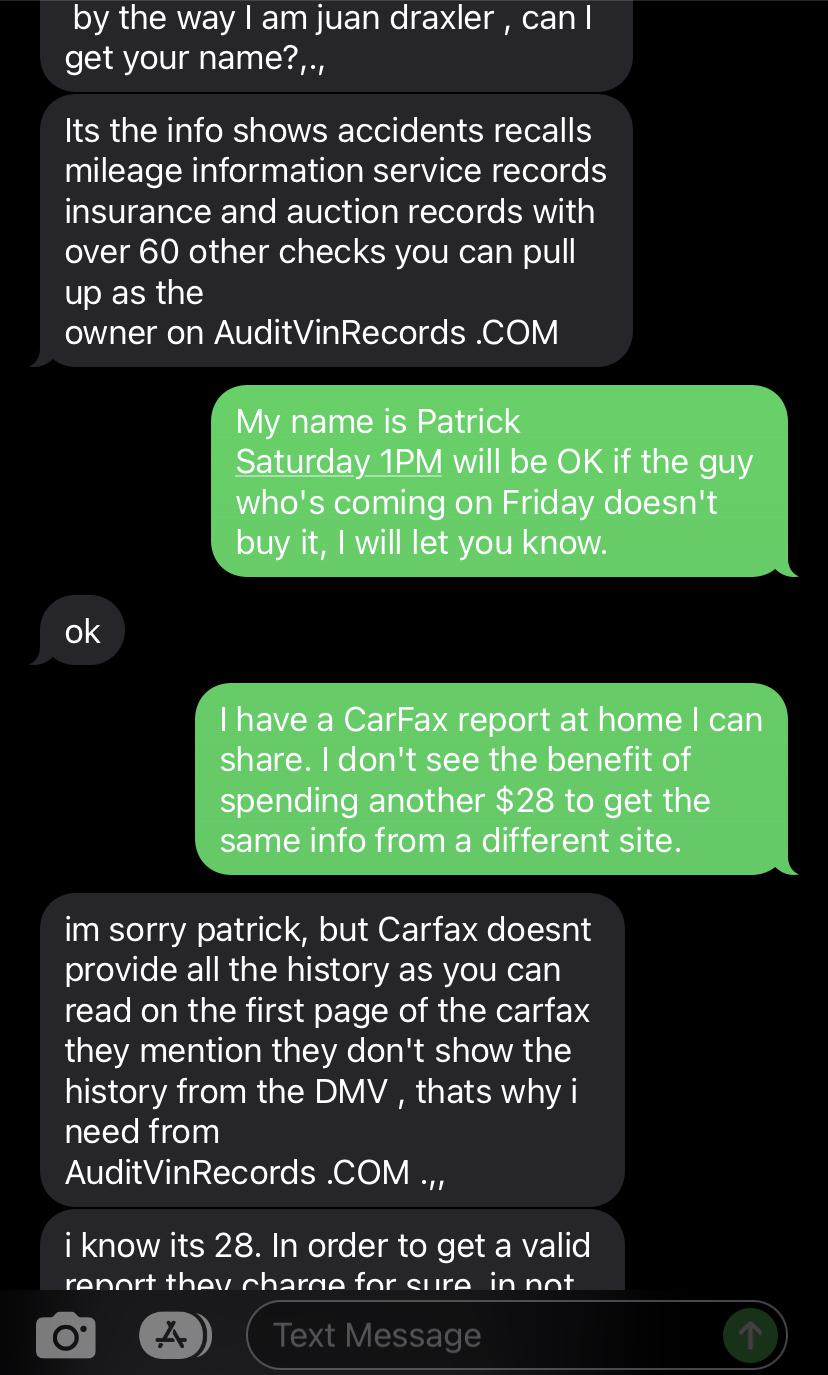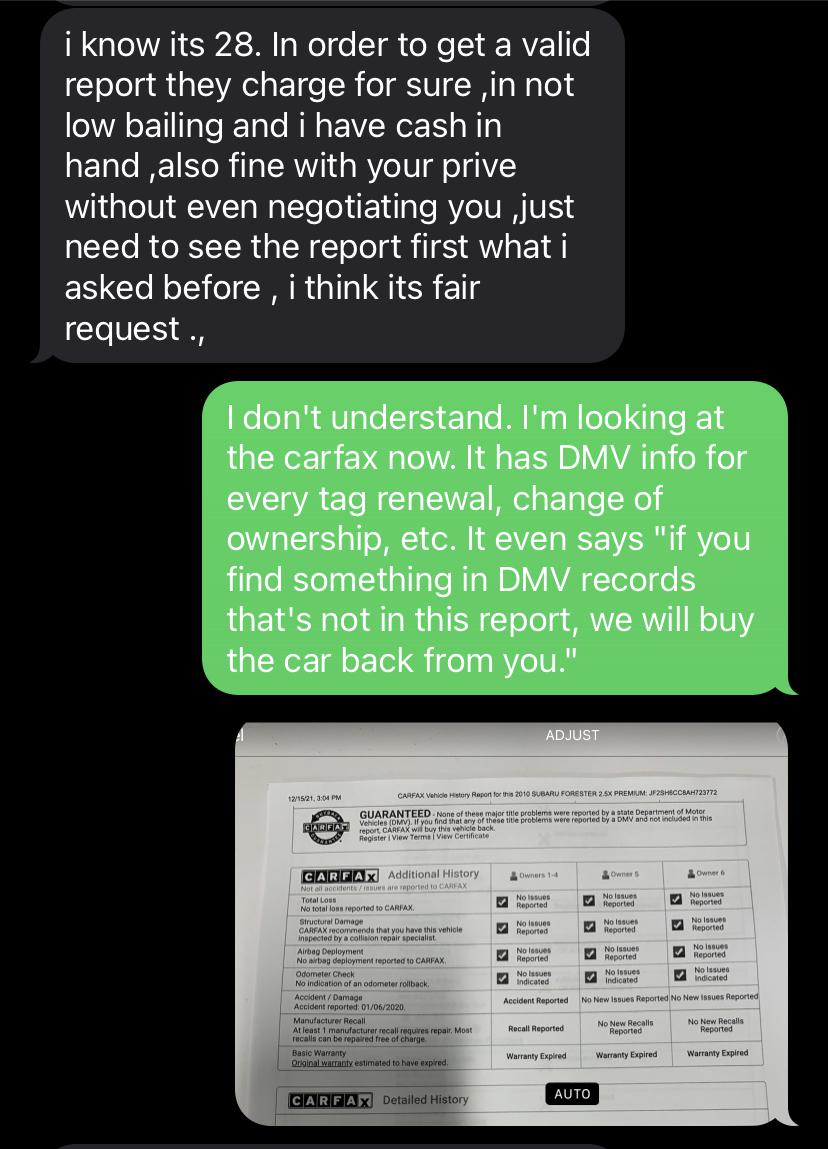Requesting a VIN number and an auto history report is usual practice for either buying or selling a used car, especially in online marketplaces like Craigslist and Facebook Marketplace. But what if you’re selling a vehicle, and someone asks for a report from an agency you’ve never heard of? Even worse, they have no reviews online, and look shady? It could very well be a scam in order to attain your credit card number and potentially steal loads of cash. These reported scam has been seen all over Craigslist, and scammers even tried to outsmart our company founder, Robert Davis.
Why are scammers asking for an auto history report from a weird website?
Loads of scammers have purchased domains ending with .VIN, a fairly new domain available to Internet users. However, .VIN is most commonly used by wineries, since vin is wine in French. Scammers have purchased these domains ending with .VIN in order to appear as a legitimate car history report source. However, once you fill in your information to buy a car report, usually they overcharge, steal your information, or sell the information to third parties.
It’s important to note that no reputable, well-known car history report companies use the .VIN domain. When selling on websites like Craigslist or Facebook Marketplace, always still vigilant of this potential threat. Some scammers are aware that people are coming around to this scam, and have even started using websites with .COM domains as well. Researching these companies is key to preventing falling victim to a VIN report scam.
- Example of a scammer trying to get a seller to retrieve a VIN report from a shady website.
- As you can see, the scammer won’t let up. Good thing the seller already has a CarFax report ready to go.
How do I stay safe from fraudsters when selling a vehicle online?
If you decide to sell a vehicle on an online marketplace, you should take proper precautions. If a buyer asks for an auto report from a website you’ve never heard of, always take the time to research the website. A proper VIN report website will have testimonial from customers, an array of search results, and usually a .COM address. If you search a VIN report website and nothing relevant comes up, or even worse, scam warnings come up, then do not proceed. Ask the buyer why they need a report from the website in particular.
Most of the time, scammers won’t be able to come up with a viable explanation. They’ll come up with nonsense about how CarFax or other reliable auto history reports don’t provide all the information they need. Don’t fall victim to this VIN report scam. Rest assured, car reports from reputable sources contain ALL the information a buyer needs. Most sellers also recommend having a CarFax report on hand, so any serious buyers can easily get that information from you.
Good thing is there are tons of credible, safe VIN report websites that you can choose from. These include CarFax, AutoCheck, VehicleHistory, and VinAudit. Note that all of these websites have reputable reviews available to see online.
What is the Google Voice scam? How are scammers taking advantage of Google Authenticator?
Another scam to be on the lookout for involves Google Voice Authenticator. Scammers don’t just target those selling vehicles – they’ll target people selling anything, or even looking for their lost pet. Scammers preying upon your listing will contact you, claiming to be interested in your product, or claiming to have found your lost pet. Before they commit to the purchase, or organizing how to return your pet to you, the scammers will feign hesitation. They’ll talk about fake online listings, and how they don’t want to be defrauded. In an effort to prove you’re a ‘real person’, scammers will send a Google Voice text to your phone, and ask you for the code, to ‘verify’ that you are real.
If you decide to send the code to them, they’ll be able to create a Google Voice number linked to your actual phone number. This Google Voice phone number allows scammers to make phone calls imitating your phone number from their desktop browser or mobile device, anywhere in the world. Scammers will use your phone number to commit other crimes, including attempting to rip people off. If scammers are successful in extracting even more personal information out of you, they’ll be able to open credit card accounts under your name. No matter what any scammer says, never share any verification codes with someone online, period.




